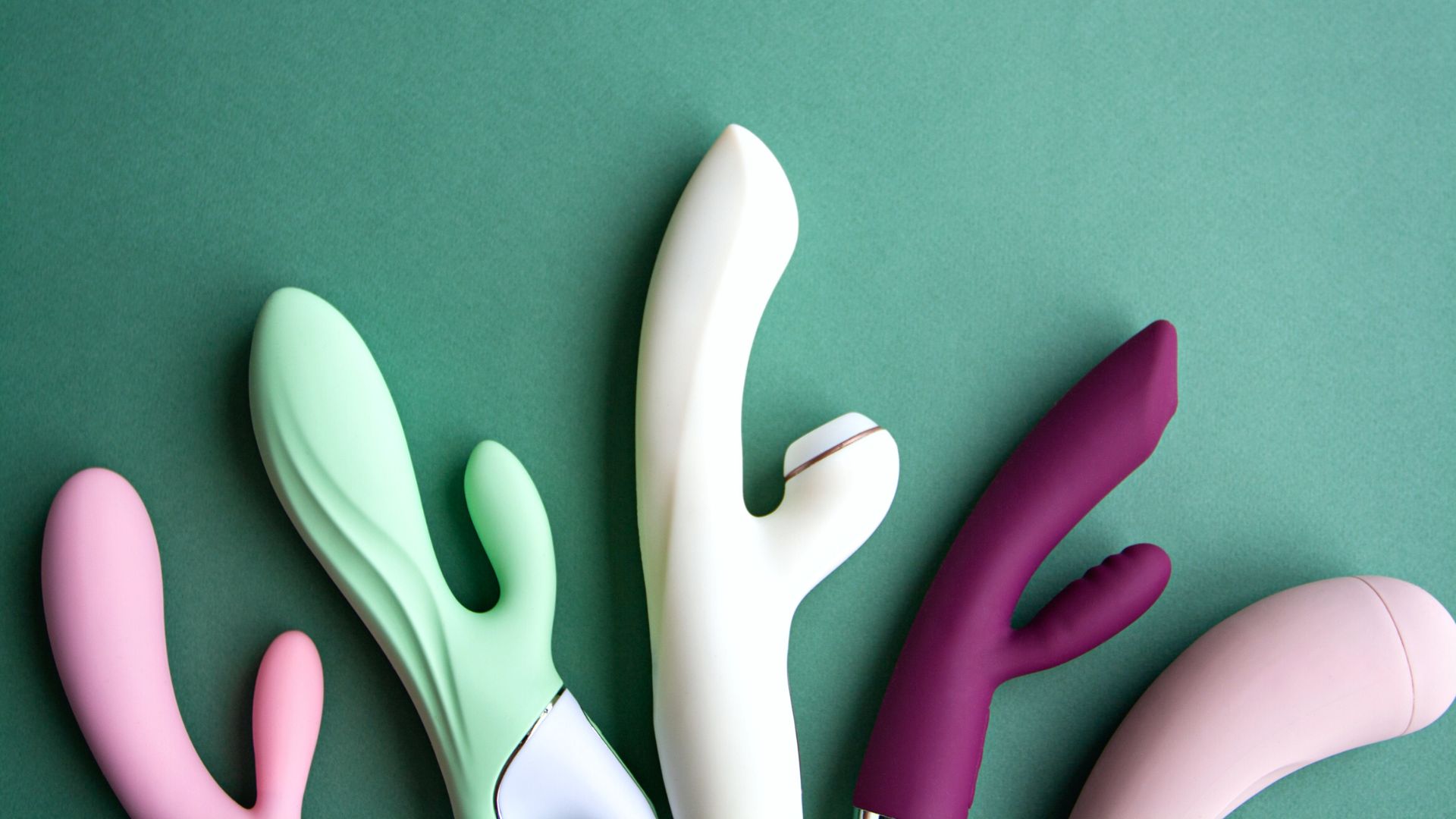
They changed the sexual landscape forever but do vibrators decrease sensitivity, you know, down there? Are these wondrous inventions—app-controlled vibrators, clit vibrators, finger vibrators, et al—undermining your pleasurable potential?
The global sex toy market is steadily growing and research indicates its worth will double from $40.6 billion in 2023 to $80.7 billion by 2030, per Statista research. With so many of us proudly using sex toys, particularly various types of vibrators, it’s no surprise that sex toy myths are on the rise too.
Stories of stolen pleasure run rampant online and over alcohol-fueled sex chats. Some claim that their vibrator has made penetrative sex with a real penis less satisfying, while others allege that their favorite sex toy—the magic wand—has stolen their clitoral sensitivity. Others rubbish these stories as myths born from fear of liberated sexuality.
So what's the truth? It lies, of course, somewhere in between. Here's what you need to know.
Can vibrators decrease sensitivity?
Good news: while research into this area is limited, there is no direct link between using vibrators and sensation loss in the genitals.
A 2009 survey of 2,056 women aged 18 to 60 published in the Journal of Sexual Medicine found no link between sex toy use and sensation loss. Negative side effects, such as numbness, pain or irritation, were rarely reported, and 83.5% of respondents said they “never” experienced any numbness.
“The worry has nothing to do with how often it's ok to have an orgasm, but with the myths that vibrators can cause damage to the clitoris or minimize orgasmic capabilities,” explains Renee Denyer, a sex expert and toy tester for Sh!. “Having too much of a good thing is not the case with vibrators. There is no evidence to suggest that vibrators can cause permanent damage.”
However, there is one caveat...
Vibrators cannot permanently inflict sensation loss. However, anecdotal evidence indicates that consistent use can increase sensation tolerance, creating the illusion of lost sensitivity.
“While vibrators can cause temporary numbness or tingling due to their intense stimulation, they don't inflict any lasting nerve damage,” says Cassie Mørch, sex expert at Bedbible.com. “It's similar to the feeling of temporary numbness you can feel after using a drill or clapping your hands for a long time. Your vulva will regain its sensitivity in no time at all, and you’ll be just as sensitive as you were before!”
Overuse is the most likely culprit, particularly if your genitals rely on vibrators to climax. Many people with vaginas are unable to climax through penetration, so clitoral stimulation is the natural go-to, but balance is everything.
“While vibrators aren't inherently addictive, using them as the main method of achieving orgasm can limit the exploration of other self-pleasure techniques,” advises Mørch. “I encourage you to diversify your self-pleasure practices.”

Be mindful of vibrator use, for medical reasons
Sensation changes could be attributed to something other than a close relationship with your vibrator.
Conditions like Raynaud’s syndrome or lichen sclerosus may cause changes in sensation or trigger numbness when using a vibrator.
“Chronic pain and health conditions and even neurodivergent conditions can switch the brain into overwhelm when vibrations are used,” adds Ness Cooper, a sex and relationship therapist and resident sexologist for JeJoue.
Be mindful of any changes and consult a doctor if necessary.
Strike a balance and rebuild your sensitivity
Vibrators are a wondrous invention we should all be thankful for but they don’t have to be the star of the show every time.
Partners may resort to using a vibrator as their go-to because it’s quicker and often has guaranteed success, yet it’s important not to rely on them too much because no one wants a repetitive sex life.
“Sensate touch can help some people learn alternatives to just having sex in a particular way,” says Cooper. “The goal is to remind our body and mind that sex and sexual pleasure can be a whole body experience and not just genital focused.”
Try seducing yourself with gentle touch and by engaging your erogenous zones, which include your ears, neck and nipples.
Sex should be creative so avoid getting stuck in sexual Groundhog Day and use your vibrators as accessories, not the foundation of your pleasure life.
“Try opting for vibrators with 'rumbly' instead of 'buzzy' vibrations, and non-vibrating sex toys,” adds Mørch. “It’s also super important to maintain an open dialogue about vibrator use with partners. Remember, vibrators are tools for enhancing pleasure, not competitors to a partner's ability to satisfy.”







